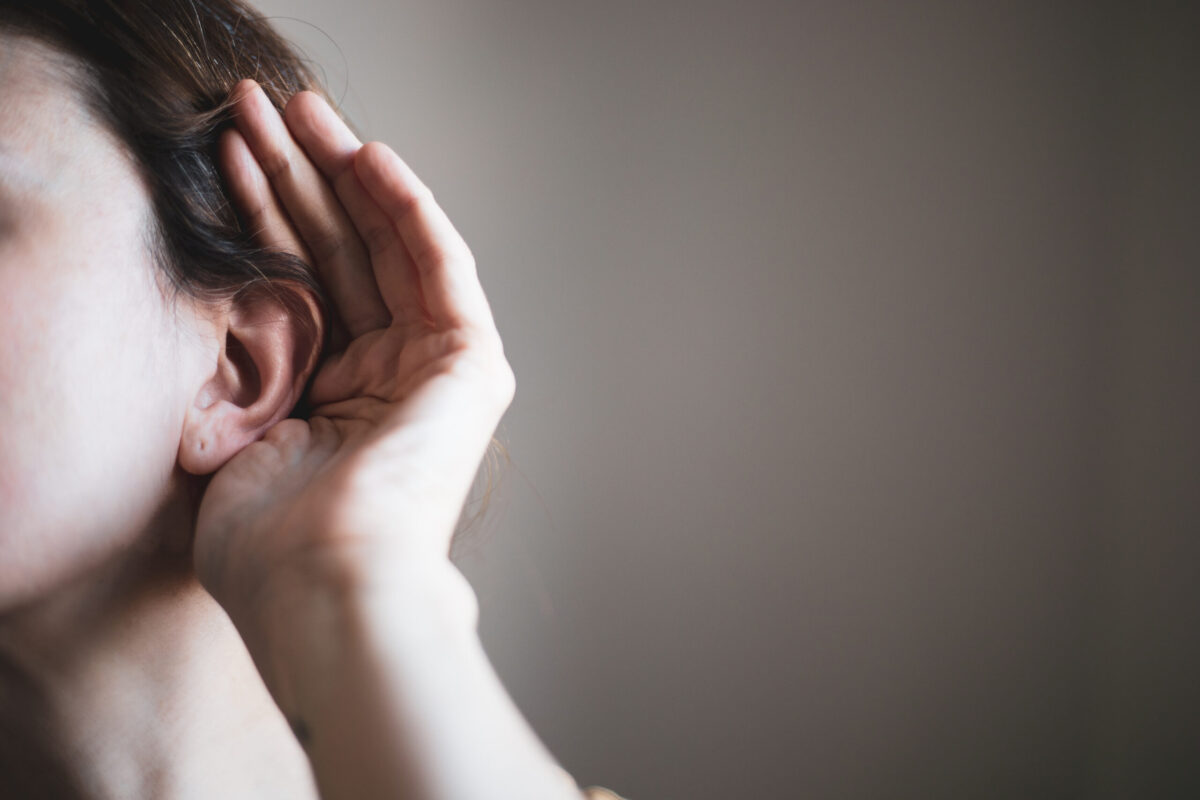Hearing loss is a unique challenge. While many of us will experience a form of hearing loss at some point during our lives, the people we interact with may have no idea that we’re struggling.
That can make it difficult to connect with each other as we normally would, says Dr. Audrey Atkins, medical director at BlueCross BlueShield of Tennessee.
“It’s important to recognize hearing loss, especially in our older population,” says Dr. Atkins. “The signs of hearing loss can range from having difficulty holding conversations to being unsteady on your feet. In some cases, it can even contribute to social isolation.”
In Tennessee, 6.6% of people have some form of hearing loss, which is higher than the U.S. rate of 5.6%. That means more than 400,000 people in Tennessee live with deafness or serious difficulty hearing.
“The best way for all of us to protect ourselves is to learn the symptoms,” says Dr. Atkins.
What are the most common signs of hearing loss?
Dr. Atkins: People who are experiencing hearing loss may:
- Speak loudly
- Have ringing in the ears
- Be slightly unsteady when walking
- Have difficulty hearing conversations, especially on the phone or in a restaurant
- Turn household electronics up very loud to hear them, and
- Avoid social situations if the problem becomes serious.
What are the most common causes of hearing loss?
Dr. Atkins: There are 3 main types of hearing loss:
- Conductive, which means sounds aren’t able to travel from outside to the inner ear. This can be caused by wax, fluid, ear infection or a foreign object in the ear. Often, this type of hearing loss is treatable with medical or surgical interventions.
- Sensorineural, which happens when there is damage to the structure of the inner ear or nerve pathways to the brain. This type of hearing loss is often permanent. It can result from aging, birth defects, consistent loud noises, infections (meningitis, mumps) or certain medications that are toxic to the ear.
- Mixed, which is a combination of both types of hearing loss above.
How much of hearing loss is related to age?
Dr. Atkins: Age-related hearing loss (presbycusis) is very common. Up to:
- 35% of adults 65-plus experience hearing loss, and
- 50% of people aged 75-plus have some level of hearing loss.
Typically, hearing loss happens gradually in both ears, with high-pitched noises becoming particularly difficult to hear. It can be caused by many things, including:
- History of loud noise exposure
- Certain medications
- Genetic factors
- Smoking, and
- Chronic health issues (hypertension, diabetes, heart disease).
How does hearing loss affect seniors?
Dr. Atkins: In older adults, hearing loss can be mistaken for dementia or cognitive impairment. It affects balance, and it can be related to increased falls and injuries from instability. Also, when a person finds conversations more difficult, it’s common for them to feel isolated or depressed. That can lead them to stop connecting with people or doing the things they enjoy.
More about senior health:
Senior health spotlight: fall prevention guide
Guide to age-related illness in Tennessee
Is loneliness bad for your health?
What should people do if they think they’re experiencing hearing loss?
Dr. Atkins: If you notice any of the following, see a doctor immediately:
- Sudden hearing loss
- One-sided hearing loss
- Fever
- Ringing or roaring in the ears, or
- Dizziness.
If you think you may be experiencing a gradual change, make an appointment with your doctor. A physical exam or hearing test (audiogram) can help determine the cause, extent and treatment of your hearing loss. Often a small, unobtrusive hearing aid can help quite a bit.
What’s the best way to protect your hearing?
Dr. Atkins: First and foremost, watch the noise levels. It’s important to recognize dangerous noise levels, at work or at home, which are often lower than we think.
For example:
- A level of 85-plus decibels can be dangerous.
- The maximum volume for a music player is about 112 decibels.
- Listening to music at that level for just 56 seconds in 24 hours can damage your hearing.
Secondly, remember that children have more sensitive hearing. If an environment is loud to you, it’s far louder for them because their brains and ears are still developing. Some studies have even linked loud noises (concerts, work) around pregnant women to hearing loss in children.
Finally, focus on living a healthy lifestyle, including routine exercise. Don’t smoke, be careful of drugs that may damage your hearing, and take medication only as directed by your provider. And don’t clean out your ears with cotton swabs! Your ears are self-cleaning, and earwax can actually be protective. Inserting anything in your ear can cause injury or infection.
Get more information about specific health terms, topics and conditions to better manage your health on bcbst.com. BlueCross BlueShield of Tennessee members can access wellness-related discounts on fitness products, gym memberships, healthy eating and more through Blue365®. BCBST members can also find tools and resources to help improve health and well-being by logging into BlueAccess and going to the Managing Your Health tab.





